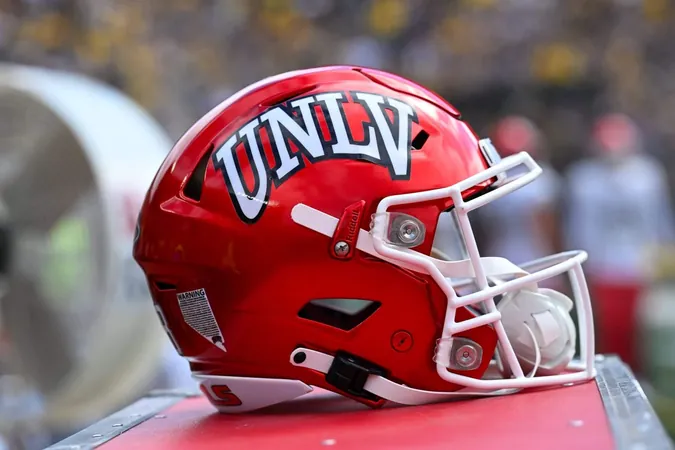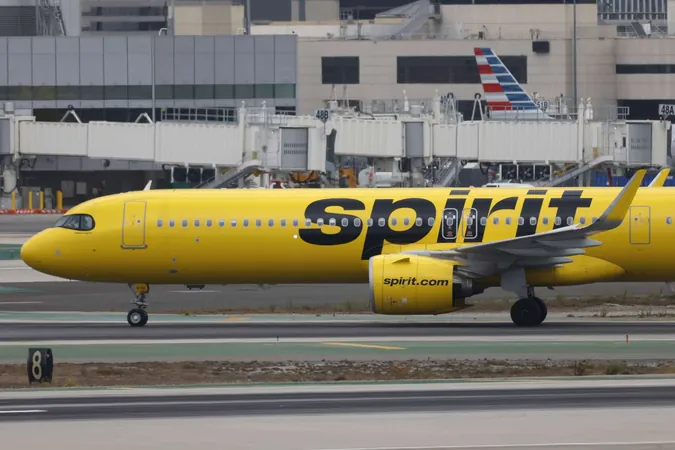
UNLV and Air Force Choose Stability in Mountain West Amid Conference Realignment Turmoil
2024-09-26
Author: Lok
Overview of the Conference Realignment Situation
In a significant development in college football conference realignment, sources reveal that both Air Force and UNLV are set to remain in the Mountain West Conference, opting out of discussions with the Pac-12 and the American Athletic Conference (AAC). This decision further complicates the ongoing saga of conference realignment in the western region of the United States.
Financial Incentives for Staying
Insider information indicates that the seven remaining Mountain West institutions have come together in a new agreement that includes substantial financial incentives—among which are expected payouts stemming from fees from departing Pac-12 schools. Air Force and UNLV stand to receive advantageous financial packages, potentially exceeding $25 million, which would dwarf the current annual media distribution for Mountain West members by more than four times.
Implications for the Pac-12
This latest move represents another setback for the beleaguered Pac-12 as it seeks to rebuild its roster of teams. Recently, the Pac-12 added several Mountain West schools, including Boise State, Colorado State, Fresno State, and San Diego State, which are set to join the conference in 2026. The Pac-12's efforts to incorporate schools from the AAC and form a 'Best of the Rest' conference fell short earlier this week, prompting a renewed interest in sourcing members from the Mountain West, with UNLV thought to be a primary target.
Current State of the Conferences
Currently, the Pac-12 consists of only seven members in anticipation of 2026, while it requires a minimum of eight to comply with NCAA Football Bowl Subdivision (FBS) standards. The Mountain West is also in a unique position, having seven football-centric members, of which only six qualify as full-time members—due in part to Hawaii's limited membership status.
Financial Obligations and Lawsuit
Furthermore, the Pac-12 is facing a significant financial obligation to the Mountain West, with close to $150 million in fees owed. Complicating matters, the Pac-12 has initiated a lawsuit against the Mountain West, contesting the legitimacy of the poaching fees defined in a scheduling agreement signed last year. According to this agreement, if the Pac-12 enrolls some but not all Mountain West teams, it incurs poaching fees, now amounting to $55 million, in addition to $18 million exit fees for each school that leaves.
Trust Issues and Future Prospects
As this legal dispute unfolds, its resolution may take considerable time. Earlier this month, the Mountain West alerted the Pac-12 to a total of $43 million in exit fees for four schools. However, the Pac-12 countered, claiming the poaching fee clause lacks legal enforceability. While theoretically, the Pac-12 could still entice all remaining Mountain West members to join without incurring fees, sources indicate that trust may have eroded to a point where further departures seem unlikely.
Conclusion
As this situation develops, it leaves many questions about the future of collegiate athletics in the west. Stay tuned as we follow this evolving story and dive deeper into how these movements may reshape the landscape of college sports in the coming years!




 Brasil (PT)
Brasil (PT)
 Canada (EN)
Canada (EN)
 Chile (ES)
Chile (ES)
 España (ES)
España (ES)
 France (FR)
France (FR)
 Hong Kong (EN)
Hong Kong (EN)
 Italia (IT)
Italia (IT)
 日本 (JA)
日本 (JA)
 Magyarország (HU)
Magyarország (HU)
 Norge (NO)
Norge (NO)
 Polska (PL)
Polska (PL)
 Schweiz (DE)
Schweiz (DE)
 Singapore (EN)
Singapore (EN)
 Sverige (SV)
Sverige (SV)
 Suomi (FI)
Suomi (FI)
 Türkiye (TR)
Türkiye (TR)